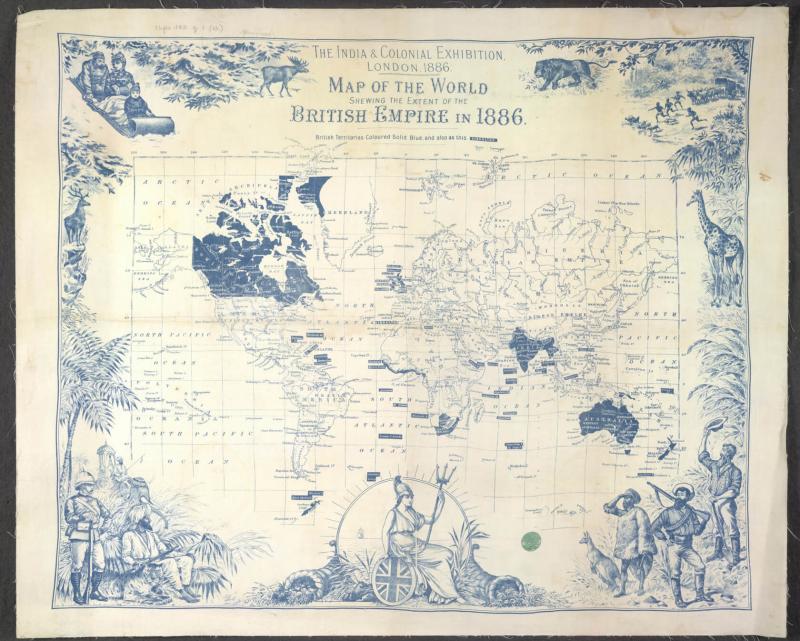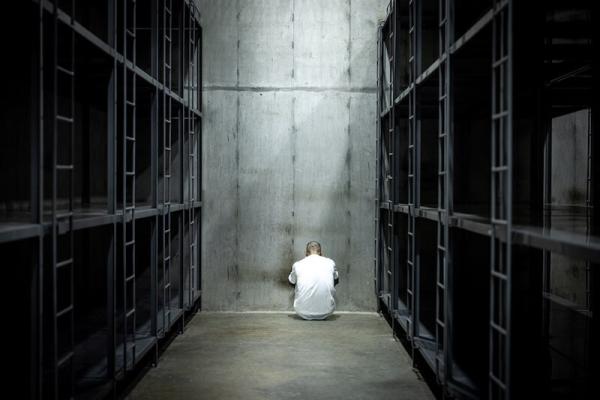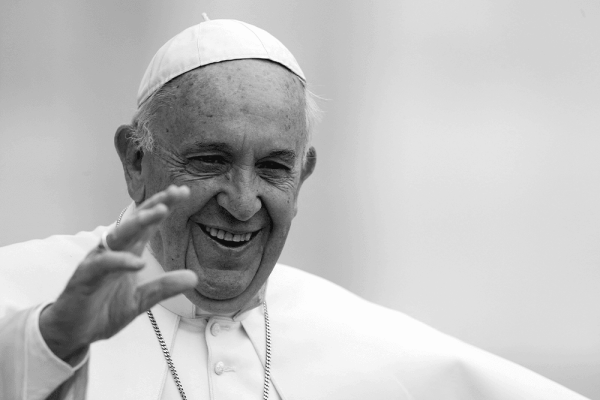Economist and Anglican clergyman Rev. Thomas Robert Malthus delivered a sobering message,
The vices of mankind are active and able ministers of depopulation. They are the precursors in the great army of destruction; and often finish the dreadful work themselves. But should they fail in this war of extermination, sickly seasons, epidemics, pestilence, and plague, advance in terrific array, and sweep off their thousands and ten thousands. Should success be still incomplete, gigantic inevitable famine stalks in the rear, and with one mighty blow levels the population with the food of the world.
In An Essay on the Principle of Population, first published in 1798, Malthus wrote about what he considered an imminent crisis in light of nature’s laws: People always have sex, always need food, and the rate of human population growth outpaces food supply. Eventually, death and chaos ensue unless population growth is kept in check. Nature checks population growth through events like famines and plagues. Humans can preventatively check population growth through prudence and virtue.
The problem Malthus saw in the England of his time was that its laws aimed at helping the poor promoted vice. This system of poor relief, known as The Poor Laws, interfered with the need for poor people to practice self-discipline, and increased the price of corn. Poor people, assisted by government allowances, would keep having babies instead of postponing marriage. Malthus opposed birth control, favoring abstinence and cuts to the relief he believed undermined personal responsibility. From his perspective, the cure was worse than the disease.
Malthus’s economic framing took on the shape of a religious conviction about who deserves to eat and who deserves to starve. In the second edition of his essay, published in 1803, Malthus tells a parable in which Nature holds a feast for a select group of guests. A poor man shows up to the feast looking for food. Nature tells him to leave, but the man sparks compassion in guests. They make room for him. Then, after hearing about this news, numerous claimants show up. As a result,
… the happiness of the guests is destroyed by the spectacle of misery and dependence in every part of the hall … The guests learn too late their error, in counter-acting those strict orders to all intruders, issued by the great mistress of the feast, who, wishing that all guests should have plenty, and knowing she could not provide for unlimited numbers, humanely refused to admit fresh comers when her table was already full.
Malthus spells out the lesson of the parable clearly: “A man who is born into a world already possessed, if he cannot get subsistence from his parents on whom he has a just demand, and if the society do not want his labour, has no claim of right to the smallest portion of food … ”
To anachronistically apply Twitter lingo, it’s safe to say that Malthus was subsequently dunked on, piled on, and ratioed. Samuel Taylor Coleridge wrote, “the whole work is written in the same ratio … 8 lines of Sense & substance to 8 x 30 = 240 Lines of Verbiage and senseless repetition.” Percy Shelley called Malthus “the apostle of the rich.” Charles Dickens took a shot at Malthus in one of Ebenezer Scrooge’s lines about decreasing “the surplus population.” William Hazlitt concluded about Malthus, that having preached “the virtue of celibacy with such success to others, he found it no longer necessary to practice it himself.” Karl Marx fumed that Malthus’s theories conformed to the interests of the ruling classes, “whom Malthus adored like a true priest.” Robert Southey described Malthus’s work as “colliquative diarrhea of the intellect.”
Mary Shelley had her own creative response to Malthus, parting ways with her husband, Percy Shelley, and her father, William Godwin. In her novel The Last Man, published in 1826 and set in the years 2073-2100, a plague wipes everyone out except for one man. Shelley’s story accepts the ubiquity of human suffering but questions whether a God designed it that way. Her character Lionel asks,
Did God create man, merely in the end to become dead earth in the midst of healthful vegetating nature? Was he of no more account to his Maker, than a field of corn blighted in the ear? Were our proud dreams thus to fade? Our name was written "a little lower than the angels;" and, behold, we were no better than ephemera. We had called ourselves the "paragon of animals," and, lo! we were a "quint-essence of dust."
Ultimately, Malthus’s projection proved false. The industrial revolution changed everything, including agriculture, at the very time that Malthus was writing. England didn’t run out of food because of exploding population. As Nobel Prize-winning economist Paul Krugman put it, “Malthus was right about the whole of human history up until his own era.” However, the term “Malthusian” derived from Malthus, used to describe sinister attempts at population control and calloused economic calculation, stuck around ever since.
Historian Robert J. Mayhew argues, in Malthus: The Life and Legacies of an Untimely Prophet, that Malthus should be understood beyond the caricatures made about him. Yes, Malthus made mistakes and wrote offensive things, which he cut in later editions of the essay. But for Mayhew, there’s another sense in which Malthus was right: He provided the first great analysis in the modern world of the interconnectedness between human population, the environment, and the economy.
Love him or hate him, Malthus is one of those figures who doesn’t go away. He precipitated England’s first official census in 1801 (I should note: The online deadline for the U.S. 2020 Census has been extended to Aug. 14). Charles Darwin found inspiration in Malthus while writing On the Origin of Species. In the early 20th century, British economist John Maynard Keynes considered Malthus one of his favorite thinkers, and some think Malthus anticipated aspects of contemporary economic recessions and depressions. Malthus has been invoked in debates about China’s one-child policy and several other nations’ conflicts and changing demographics. Apparently, Thanos in Marvel’s Avengers was a Malthus disciple. Relating Malthus to climate change, the progressive writer Bill McKibben provocatively asked back in 1999: “Will Malthus still be wrong fifty years from now?”
Today, we are facing the onslaught of three major crises. The COVID-19 pandemic is the first wave, wreaking havoc with no clear end in sight. It may require social distancing policies into 2021 and 2022. Meanwhile, Trump has made a sexual inuendo about being “involved in” models while discussing statistical models projecting hundreds of thousands of deaths, and his administration’s failures in responding to the pandemic have already cost many lives here in the United States. Even if the virus is swiftly and soundly defeated, we face yet another wave: a global economic meltdown for which there is no precedent. Then, should our leaders handle the virus and the economy, miraculously returning us to pre-pandemic “normalcy,” we would still be steadily on course for a climate-change future that would dwarf any scale of suffering in the history of our species.
As some debate the tradeoffs between resuming economic activity and saving human lives from the virus, consulting constantly changing projections, it appears Malthus may have lost the contests of his day while winning the longer ideological battle. This week, a protester opposed to her state’s social distancing policy held up a sign that read, “Sacrifice the Weak.” These are Malthusian times, one could say. But what’s often overlooked in declarations of yet another “Malthusian moment,” is the theological underpinnings, the assumptions about God and human nature, that permeate his economic analysis, and thus our own.
*
While it’s easy to think of Malthus as an establishment shill who grew up with a silver spoon in his mouth, Mayhew paints a different portrait. Malthus was born on Feb. 13, 1766, with a cleft palate that resulted in a life-long speech impediment. He grew up in a family of “middling sort,” or of middle-class background, south of London in Surrey. His father Daniel Malthus, who was an Oxford dropout and a huge fan of French philosopher Jean-Jacques Rousseau, enrolled him in a Dissenter school, a move that wasn’t exactly a fast-track to the center of power. The financial worries of one of Thomas Malthus’s early mentors, Richard Graves, apparently left a lasting mark on him. Graves expressed despair at potentially having sent his wife to an early grave because he struggled to keep five kids afloat while working as a clergyman, teacher, and author. Malthus’s takeaway: Love isn’t enough without economic foresight.
As Daniel’s second son, Thomas Malthus could not inherit his father’s wealth and, to some extent, had to fend for himself. While attending Cambridge, he wrote a letter to his father complaining about the rising costs of education,
It might be otherwise when you were in Oxford, but from the little knowledge I have gained since I have been here at Cambridge I could almost affirm it to be absolutely impossible for a person to live here … upon 60£ a year.
After getting ordained, graduating from Cambridge, and launching his writing career, Malthus flouted party lines and expressed political views that don’t neatly map onto our own right-left divides. For example, unlike many of his contemporaries, including Coleridge, Malthus opposed colonial land grabs that were pursued under the pretext that these “new worlds” were scarcely populated and boundlessly resourced. Malthus took a minority position among free market economists in supporting the protectionist Corn Laws. Even though some used Malthus’s Essay to defend the slave trade, Malthus personally supported abolition and sided with William Wilberforce in Parliament.
Something that Mayhew’s book does not mention, however, and that’s addressed by historians Alison Bashford and Joyce E. Chaplin in The New Worlds of Thomas Robert Malthus, is the fact that Malthus was involved in his family’s litigation over the inheritance of plantation wealth in Jamaica. Even if he did mildly oppose the slave trade, Malthus didn’t lack vested interest. The abolitionist campaign preferred purchasing East Indian sugar instead of West Indian sugar, favoring free Indian labor over enslaved black labor. Profitability and efficiency were as high of a priority as human dignity in this judgement. British colonists were increasingly vulnerable to Caribbean slave revolts . Malthus’s professorship in Political Economy, the first of its kind in history, which he held from 1805 until his death in 1834, was at East India Company College in Hertfordshire where he taught company clerks en route to India.
12458902013_6ed85b8715_o_1.jpg

Before Malthus, there were no economics professors. The Scottish economist Adam Smith, who published The Wealth of Nations in 1776, was a professor of moral philosophy. Malthus and Smith reflect another era in which the emerging academic discipline of economics contained explicitly theological and ethical debates. The theology in vogue during Malthus’s time modeled itself after Newtonian science and was epitomized by William Paley’s Natural Theology. God was to be found in the laws detected within the “book of nature.” What did Malthus read in nature? Scarcity, competition, and misery.
Malthus acknowledged that his essay gave human life “a melancholy hue.” But he believed that these realities really existed in the picture of nature and weren’t fabricated by pessimistic dark-tinted glasses. The rose-colored glasses that distorted nature belonged to the journalist and philosopher William Godwin, whose acclaimed work on political justice inspired Malthus to respond. Godwin believed in “the perfectibility of man,” that vice was mostly attributable to oppressive institutions. For him, human reason and new technology would usher in a social utopia. Malthus’s Essay essentially began as a hate-read of Godwin.
In the last two chapters, Malthus makes a theological argument: God intentionally created a world of scarcity. Why? Because, “If no man could hope to rise or fear to fall, in society, if industry did not bring with it its reward and idleness its punishment, the middle parts would not certainly be what they now are.” It is through ordaining competition in nature that God created an avenue for human creativity to be activated through adversity. Institutions are light feathers compared to the corruption arising from human nature. Without fighting for survival, people would remain inert and sluggish. In one thinly veiled self-referential passage, Malthus writes that, “talents are more common among younger brothers, than among elder brothers,” because they are forced to exert themselves.
Malthus’s Essay upended conventional thought. He broke with the ancient assumption that a large population always equaled a strong state. He undercut religious and secular utopian thinkers who thought everything would get better. And he distinguished himself from previous theologians who believed that God wouldn’t allow humans to do anything that the earth couldn’t physically handle.
For Malthus, theology couldn’t be an escapist fideism that was out of touch with the empirical realities of a changing world. As such, he attempted to constantly tweak his observations in later editions of his essay. This led economist Robert Torrens to remark glowingly, in what would sound like a diss in any other context: “Mr. Malthus scarcely ever embraced a principle which he did not subsequently abandon.”
Malthus revised his observations, but he never abandoned the principle that God created the world as an arena of competition in which humans rise or fall through their own virtue or vice. In fact, this principle was part of a larger consensus being subsumed into the new science of economics. According to this objective science, society functioned best under a self-regulating market that maximized individual self-interest. In this instance, Malthus’s hero, Adam Smith, was catching up with the French economists. It was Pierre de Boisguilbert who first constructed a theory of the self-regulating market and said, “On laisse faire la nature (Let nature run its course).” Boisguilbert found inspiration in the 5th century: A North African Catholic bishop had written about the fallenness of human nature; God imposed governments as punishment for sin, but he could harness humanity’s self-regarding sins to produce social good. The bishop was Augustine of Hippo.
*
When House Speaker Nancy Pelosi (D-Calif.) met with Treasury Secretary Steven Mnuchin to negotiate one of the stimulus packages in March, she decided to quote a prayer from Pope Francis. Mnuchin replied, “You quoted the pope, I’ll quote the markets.”
Mnuchin’s flippant response obscured the fact that Pope Francis is someone who’s thought deeply about markets. In Evangelii gaudium, Francis criticized the idea of a self-regulating market: “In this system, which tends to devour everything which stands in the way of increased profits, whatever is fragile, like the environment, is defenseless before the interests of a deified market …”
Francis extended similar critiques in Laudato si', which conservative Catholic editor R.R. Reno characterized as containing “strikingly anti-scientific, anti-technological, and anti-progressive sentiments … the most anti-modern encyclical since the Syllabus of Errors …” This is the same Reno who, in opposition to Francis and public health experts, has called for keeping churches open amid the COVID-19 pandemic.
2020-04-11t204549z_1_lynxnpeg3a0hw_rtroptp_4_health-coronavirus-easter-pope-vigil.jpeg

While Francis’ critics dismiss him as a Marxist, the economist he’s closest to in his thinking is Karl Polanyi. In The Great Transformation, published in 1944, Polanyi argued that the self-regulating market is itself a utopian idea that annihilates human life and destroys the environment wherever people try to impose it. No society could last if it submitted itself to the market without protections. The market isn’t an autonomous machine existing outside of nature and society; it’s shaped by the rules people impose on it. For Polanyi, the alternative to extending democracy within the economic sphere was fascism, which he personally had to flee.
There is one area in which Polanyi and Malthus ironically converge. Like many other economists, Polanyi commented on Speenhamland, an episode in the history of England’s Poor Laws in which food relief was targeted at the rural poor. He agreed with the economic consensus that this relief, while well-intentioned, removed the incentive to work. As fate would have it, part of Polanyi’s book, which was otherwise an incisive critique of free market ideology, ended up in a Richard Nixon administration memo used to gut financial assistance to poor families. Yet, sociologists Fred Block and Margaret Somers have demonstrated that recent studies in social and economic history undermine the Speenhamland story. It appears most economists relied on one highly flawed 1834 Royal Commission Report that confirmed what the commission was ideologically committed to finding. The Speenhamland story’s elements were already present in 1798, before evidence had been gathered, in Malthus’s Essay. That was the power of Malthus’s storytelling, well into the era of welfare reform in the United States.
Charts and projections are only as helpful as the framings and prejudices one brings into interpreting them. From one angle, resources are scarce. From another, resources are unequally distributed. In some accounts, populations are to blame. Explicitly channeling Malthus, Winston Churchill once framed a plague in India as one in which, “a philosopher may watch unmoved the destruction of some of those superfluous millions, whose life must of necessity be destitute of pleasure.”
In our own season of plague in the United States, it’s true that African Americans and Latinos are being disproportionately impacted by COVID-19. It’s also true that communities of color will likely bear the brunt of the new economic downturn. This reality, with its subsequent graphs, still requires interpretation.
Surgeon General Jerome Adams laid out his angle in a press conference where he told African Americans and Latinos to “avoid alcohol, drugs and tobacco … Do it for your abuela, do it for your granddaddy, do it for your big momma, do it for your pop-pop.” The exhortation, “We need you to step up and stop the spread so that we can protect those who are most vulnerable,” lacked a parallel exhortation for white people. In fact, Trump later applauded supporters of his who publicly protested state lockdowns in mass, jeopardizing everyone’s health in the process. Adams’ statement implied that the COVID-19 disparities hitting people of color were related to their lack of effort. He later apologized for his comments, but the damage was already done, and its logic made clear. Inequities due to zip code and skin color were read as biological fact, and biology fact was read as a sign of inferiority or bad behavior.
The Jamaican philosopher Sylvia Wynter considered Malthus a pivotal figure in constructing Europe’s “undeserving poor” and transferring concepts of original sin and redemption into economics. At the same time, she pointed out that Malthus’s hierarchical conception of Nature’s feast was becoming racialized. Instead of Malthus’s celibacy argument for the rural English, our century gets Bill Gates’ fixation about Africa’s reproductive rates, and the peddlers of new race science.
If today’s economic debates about who is worthy and unworthy seem like theological debates, it’s because originally, they were.
When a handful of Republican senators threatened to delay one of the stimulus packages for being too generous to laid-off workers, they were not cruel in the world of Malthus’s God. The same could be said about states like Florida that created stingy unemployment insurance systems, which are now forcing millions of people to jump through various hoops. Those who slip through the cracks fall because of their sins. They must have done something. They didn’t exert themselves.
The virus creates another surplus population, the elderly, and another mortal sin, preexisting conditions. COVID-19 kills individuals who don’t take care of themselves, goes the thought. Nature deemed them weak.
Some see today’s world through a Malthusian lens. Let nature run its course, they say. Feed the economic machine. Keep the feast. The damned are damned through some fault of their own. Helping them will only multiply sins.
This amounts to a theological axiom. For the believers, it doesn’t matter what evidence contradicts it.
Got something to say about what you're reading? We value your feedback!








